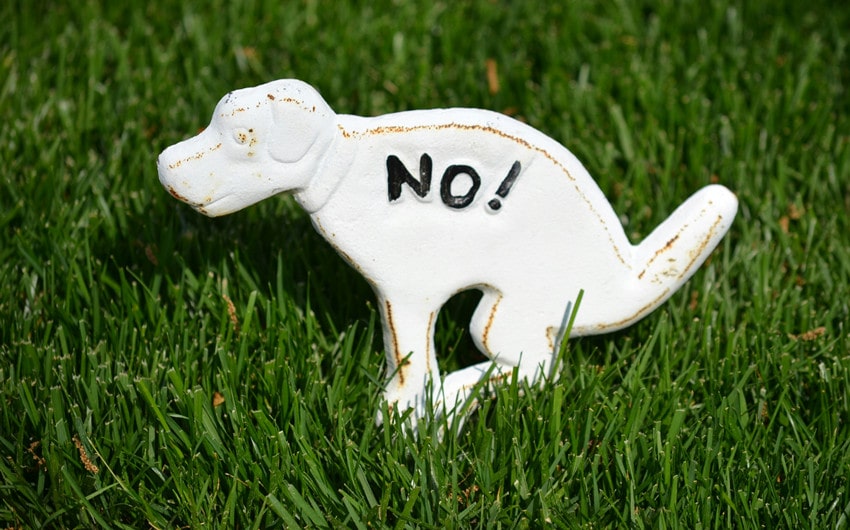Owning a pet is an amazing experience, filled with joy and companionship. However, it also comes with some important responsibilities, like cleaning up after your furry friend.
Ignoring proper pet waste disposal isn’t just gross, it can actually pose serious health risks for both humans and animals.
In this article, we’ll dive into three major health issues that can pop up if pet waste isn’t handled correctly. We’ll explain why it’s so important to pick up after your pets and dispose of their waste responsibly.
Water Contamination
Improperly disposed of pet waste often ends up contaminating water sources like rivers, lakes, and groundwater. Dog poop, in particular, is loaded with harmful bacteria like E. coli and parasites like Giardia and roundworms. Considering dogs are the most popular pets in the U.S., with over 65 million households in the U.S. owning dogs according to Forbes, this is a big deal.
As per the City of Corpus Christi, just one gram of dog waste can contain up to 23 million fecal coliform bacteria. These harmful bacteria have the potential to contaminate our water sources, presenting serious health risks to both humans and wildlife.
So, picking up after your dog isn’t just about keeping the sidewalks clean, it’s about protecting our water and our health too.
And if reading this makes you want to tackle the tough job of cleaning your entire yard, why not hire a dog waste service? These pros specialize in safely removing pet waste, and keeping your yard clean and free from harmful bacteria and parasites.
Scoop Soldiers notes that they can come to your home regularly, so you never have to stress about dog poop piling up. Plus, they’ve got the tools and know-how to dispose of the waste properly, preventing water contamination and reducing health risks.
Zoonotic Diseases
Zoonotic diseases are illnesses that can pass between animals and humans. According to the Wisconsin Department of Health Services, over 60% of known infectious diseases in people can be spread between humans and animals. Many of these diseases can be caught through contact with pet waste.
Examples of Zoonotic Diseases
• Toxoplasmosis is spread by the parasite Toxoplasma gondii, which is commonly found in cat feces. The parasite can even be transmitted to a baby during pregnancy. Medscape reports that approximately 225,000 cases of toxoplasmosis are reported each year in the U.S., leading to 5,000 hospitalizations and 750 deaths.
• Salmonella and Campylobacteriosis are bacterial infections that can be transmitted from dog and cat feces. The CDC reports that Campylobacter is a major cause of bacterial diarrheal disease globally. In the United States alone, Campylobacter leads to about 1.5 million human illnesses annually.
• Cryptosporidiosis is a parasite commonly found in pet waste that causes gastrointestinal illness. According to the Cleveland Clinic, there are over 700,000 cases of cryptosporidiosis reported in the U.S. annually. It is the second most frequent cause of diarrhea among children.
Airborne Health Hazards
Improperly managed pet waste can pose serious risks as a source of airborne pathogens and allergens, especially in dry or windy conditions. When pet waste dries out, it can release roundworm eggs into the air, which can be inhaled and cause health issues.
Additionally, decomposing waste emits ammonia, which can irritate the respiratory system upon inhalation.
Exposure to these airborne contaminants can exacerbate asthma, allergies, and other respiratory conditions. Extended exposure may result in long-term health issues, particularly for individuals with pre-existing conditions.
FAQs
What are the symptoms of toxoplasmosis?
Symptoms of toxoplasmosis can vary widely from person to person. Many individuals infected with toxoplasmosis exhibit no symptoms at all. However, when symptoms do occur, they can resemble those of the flu, including fever, body aches, and swollen lymph nodes. In rare cases, toxoplasmosis can lead to more severe symptoms such as blurred vision, confusion, seizures, and lung problems.
What is E. coli?
E. coli (Escherichia coli) is a bacterium that naturally lives in the intestines of humans and animals. While most strains of E. coli are harmless and can even aid in digestion, certain strains can lead to serious illness. These harmful strains typically produce toxins that can lead to serious gastrointestinal issues, such as severe stomach cramps, and diarrhea (often bloody).
Why should I hire a pet waste removal service?
Hiring a pet waste removal service offers several benefits beyond just convenience. These services save you time and effort by regularly cleaning your yard, ensuring it remains clean and pleasant for you and your family to enjoy. By promptly removing pet waste, they help prevent the spread of harmful bacteria, parasites, and other contaminants that can pose health risks.
In summary, proper pet waste removal isn’t just about keeping things clean, it’s crucial for protecting public health and the environment. By understanding the risks of not managing pet waste properly, pet owners can protect the health and safety of their families, pets, and communities. Taking simple precautions is key.
Remember, responsible pet ownership means being aware of where your pet goes and always cleaning up after them. By doing this, you’re not only being a good neighbor but also preventing potential health hazards linked to pet waste.
Consider hiring pet waste cleaning services for even better cleaning and to make your life easier.







